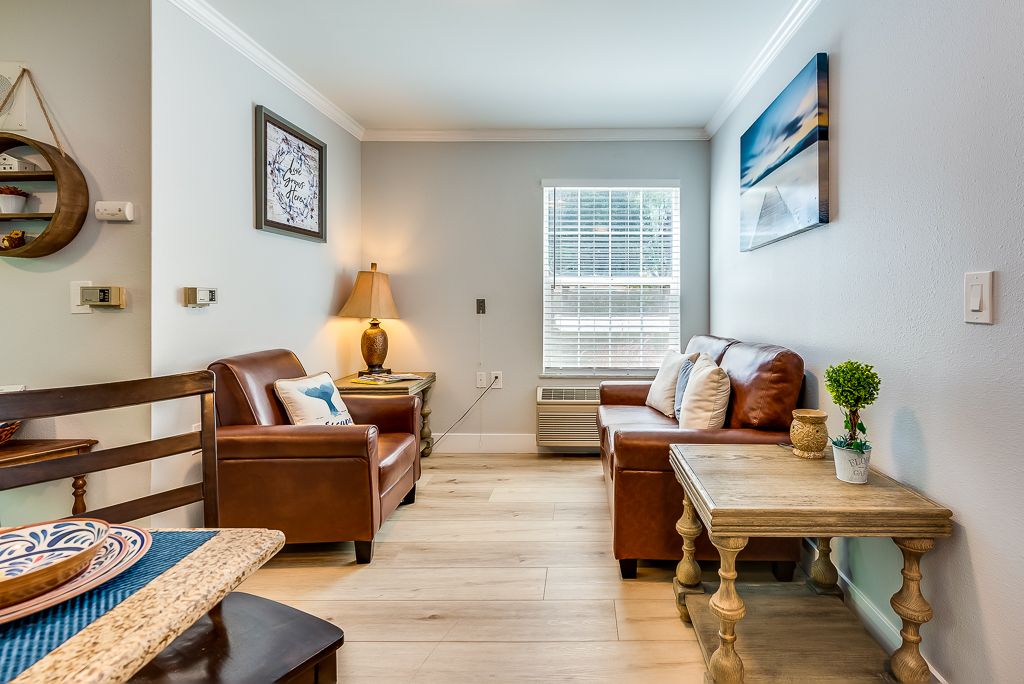Personalized Memory Care for Dementia in a Warm Space
Personalized Memory Care for Dementia in a Warm Space
Blog Article
All About Memory Treatment Providers: Why Little Memory Care Homes Are a Wonderful Choice
Memory treatment services play a vital role in sustaining individuals with Alzheimer's and mental deterioration. Small memory treatment homes stand out for their individualized technique and intimate setting. With reduced staff-to-resident proportions, these homes promote stronger links and customized care. Homeowners take advantage of enhanced social communications and a safe atmosphere. As households discover choices, understanding the unique benefits of tiny memory care homes comes to be vital. What aspects should be taken into consideration when picking the ideal home?
Understanding Memory Care Solutions
While many might be familiar with basic elderly treatment choices, understanding memory treatment services is essential for family members dealing with the obstacles of cognitive decline. Memory treatment particularly satisfies people with conditions such as Alzheimer's condition and various other types of dementia. These solutions provide an organized environment that concentrates on enhancing the lifestyle for homeowners through specialized treatment and support.Memory treatment centers are designed to ensure safety and security and safety and security, typically featuring protected environments to avoid wandering. Trained staff participants are available all the time to aid with everyday tasks, drug management, and personal treatment. In addition, memory treatment programs typically consist of cognitive stimulation activities, customized to involve homeowners and promote mental wellness. Family members can gain from understanding these solutions, as they make it possible for notified choices concerning their enjoyed ones' care, making sure that their specific needs and preferences are resolved in a compassionate and encouraging way.
The Benefits of Small Memory Treatment Homes
Little memory treatment homes offer distinct advantages that can greatly enhance the lifestyle for homeowners with cognitive impairments. One considerable advantage is the intimate setting, which allows for personalized interactions among team and residents. This smaller sized setup cultivates meaningful partnerships, reducing sensations of seclusion and anxiousness commonly experienced by people with memory issues.Additionally, the reduced staff-to-resident ratio in small memory care homes allows caretakers to give more conscientious guidance and assistance. This method not only improves safety but additionally advertises a complacency for the residents.Moreover, tiny memory treatment homes can adapt swiftly to the one-of-a-kind demands and choices of each local, enabling an extra homelike ambience. Such an atmosphere can encourage social involvement and engagement in activities, eventually enhancing the day-to-day experiences of those dealing with cognitive impairments.
Personalized Care Program for Citizens
Customized care strategies are essential in memory treatment homes, as they satisfy the one-of-a-kind requirements and choices of each citizen. These plans start with detailed analyses performed by knowledgeable professionals, who examine cognitive abilities, case history, and personal passions. This tailored method warranties that care is not just efficient but also considerate of each individual's dignity and autonomy.Moreover, personalized treatment strategies are adaptable, allowing changes as locals' requirements progress with time. This flexibility promotes a complacency and knowledge, which is necessary for people living with memory challenges. Caretakers are educated to implement these plans consistently, giving support that lines up with the citizens' routines and preferences.Ultimately, individualized treatment strategies boost the lifestyle for locals by advertising wellness, engagement, and freedom, making them an essential element of memory care services in tiny memory care homes.
Developing a Home-Like Environment
Producing a home-like environment is crucial for fostering comfort and experience in memory treatment setups, as it substantially impacts residents' psychological wellness. Tiny memory treatment homes usually focus on personalized touches, such as cozy color combinations, family images, and acquainted furniture plans, which help homeowners feel extra at simplicity. Incorporating components similar to a traditional home, like relaxing living spaces and common locations, encourages a feeling of belonging.Moreover, utilizing natural light and exterior spaces can improve the atmosphere, advertising leisure and serenity. Personnel play a significant duty in preserving this environment by engaging with homeowners in a caring fashion, treating them like household. Routine tasks, such as cooking or horticulture, can likewise add to a home-like feel, using possibilities for citizens to take part in purposeful experiences. Generally, creating a supporting setting supports cognitive feature and emotional security, making it an important facet of memory care solutions.
Improved Social Communication and Neighborhood
Enhanced social communication and community are necessary components of memory care solutions. By fostering individualized social involvement and producing a family-like environment, these solutions advertise significant connections among citizens. Team occasions and activities even more motivate engagement, aiding individuals feel more included and supported.
Personalized Social Engagement
While social communication is essential for overall well-being, many people with memory problems typically have a hard time to engage meaningfully with others. Individualized social engagement in memory care homes addresses this difficulty by producing customized activities that accommodate homeowners' unique rate of interests and capabilities. By concentrating on private choices, caretakers can promote connections that reverberate deeply with everyone. Tasks such as art therapy, music sessions, and led conversations advertise cognitive stimulation and emotional expression. In addition, small group settings encourage camaraderie and permit for more intimate communications, improving feelings of belonging. This approach not just deals with feelings of isolation yet additionally encourages citizens to preserve a feeling of identification, eventually contributing to enhanced mental wellness and high quality of life.
Family-like Ambience
In a memory care setup, promoting a family-like ambience substantially improves social communication and builds a feeling of community among residents. Smaller memory treatment homes often focus on intimate settings, enabling residents to create closer connections with each other and personnel. This nurturing ambience advertises count on, which is essential for people with memory disabilities. Locals are more most likely to involve in discussions and share experiences, producing a helpful network that reduces sensations of loneliness. The familiarity of common rooms and regimens contributes to a feeling of belonging, better urging social interaction (personalized memory care). In such setups, psychological bonds thrive, leading to improved total health and a greater quality of life for residents as they navigate their everyday experiences with each other
Group Activities and Occasions

Safety and Security Features in Small Homes
Several small homes created for memory treatment integrate crucial safety and safety and security functions to ensure the wellness of homeowners. These homes usually utilize protected entrance and departure factors to stop roaming, an usual concern amongst individuals with memory problems. In addition, security systems and alarm systems enhance surveillance, guaranteeing that team can promptly react to any uncommon activities.Interior designs are customized for safety and security, with lessened risks such as clutter-free paths and sharp corners. Handrails and non-slip floor covering are typically set up to reduce the threat of falls. Personnel members are learnt emergency situation procedures, guaranteeing they are gotten ready for various situations.Moreover, individualized treatment plans might consist of evaluation of individual safety and security needs, providing tailored remedies for each homeowner. In general, these safety and security and safety features create a nurturing setting where locals can thrive while keeping their self-respect and independence.
Just how to Select the Right Memory Care Home
How can families ensure they pick the most ideal memory care home for their liked ones? The choice requires mindful consideration of a number of aspects. Households must assess the center's team qualifications and training, guaranteeing that caretakers are experienced useful reference in handling memory-related conditions. Next, it's essential to assess the home's setting, focusing on safety and security attributes and whether it fosters a sense of area and belonging. Going to the facility can supply understanding right into day-to-day activities and the social atmosphere, which are essential for psychological stimulation and psychological well-being. In addition, Website family members should ask about the care plans offered, ensuring they are tailored to individual requirements. Thinking about the home's place and accessibility for family members gos to can contribute to a smoother change. By resolving these elements, families can make an enlightened decision that prioritizes their liked one's comfort and lifestyle in a memory care setup.
Often Asked Inquiries
What Qualifications Should Team Members in Memory Care Homes Have?
Team member in memory care homes should have appropriate qualifications, experience in dementia care, solid interaction abilities, and concern. Ongoing training in behavioral management and restorative treatments improves their capability to support citizens successfully.
Just How Do Memory Treatment Solutions Differ From Typical Assisted Living?
Memory care solutions focus particularly on people with memory disabilities, providing customized assistance and structured settings. On the other hand, standard assisted living provides basic aid with daily tasks, lacking the customized approach essential for those with cognitive challenges.
What Sorts of Tasks Are Used in Memory Treatment Houses?
Memory care homes typically supply a variety of tasks created to engage residents. Usual alternatives include art therapy, songs sessions, cognitive video games, physical workouts, gardening, and social occasions, all focused on enhancing wellness and cognitive feature.
Can Homeowners Bring Their Own Items to Memory Treatment Residences?
Homeowners can typically bring their own valuables to memory care homes, allowing them to customize their space - personalized memory care. This technique helps create an acquainted environment, promoting convenience and a feeling of identification for the individuals

Exactly How Are Member Of The Family Associated With the Treatment Refine?
Member of the family play a vital role in the treatment process, usually taking part in decision-making, going to care meetings, and supplying psychological assistance. Their participation fosters a collaborative setting, boosting the citizen's general wellness and lifestyle. While numerous might be acquainted with general senior care options, comprehending memory care services is necessary for family members facing the difficulties of cognitive decline. These solutions give an organized setting that concentrates on enhancing the high quality of life for residents with specialized care and support.Memory treatment facilities are made to guarantee security and security, often including secured atmospheres to prevent straying. Individualized care plans are crucial in memory treatment homes, as they cater to visit homepage the unique demands and preferences of each homeowner. Staff participants in memory treatment homes ought to have relevant accreditations, experience in dementia care, solid communication abilities, and concern. Memory treatment solutions focus especially on people with memory disabilities, providing specific support and organized environments.
Report this page